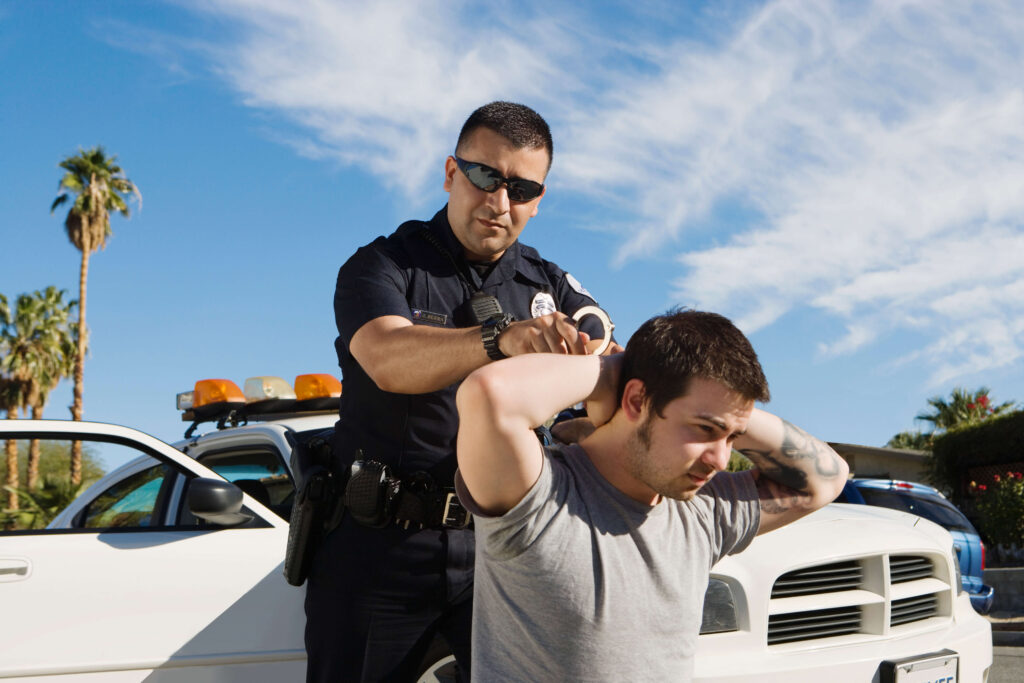Reasonable Suspicion vs. Probable Cause: Different Standards Applicable to Different Situations
“Reasonable suspicion” and “probable cause” are two legal terms of art that apply to criminal and quasi-criminal situations. Both refer to a law enforcement officer’s mental state when they want to search you or your property, especially without a warrant, or arrest you.
It likely will surprise you to learn that neither term has a precise definition. Instead, both theories rely on the circumstances and what a reasonable officer, based on their training and experience, would believe.
In general, reasonable suspicion means that the officer has one or more reasons to objectively believe, based on their observations, that someone has committed, is committing, or is about to commit a crime. In other words, the officer cannot rely on a mere hunch, nor can they allow bias to influence them. Something about the person’s behavior must be objectively suspicious.
In general, probable cause means that officers have knowledge of facts or circumstances that lead them or any trained and experienced officer to believe that the suspect is committing or has committed a crime or possesses evidence of a crime. The burden of proof for probable cause is higher than that for reasonable suspicion. However, it is still well below the “beyond a reasonable doubt” standard required to convict someone of a crime.
Keep in mind that both reasonable suspicion and probable cause apply only to government officials, not private individuals. Consequently, your employer needs neither in the event they wish to search your desk, locker or other personal belongings for illegal drugs or anything else.
Reasonable Suspicion Examples
Reasonable suspicion comes into play most often with regard to investigatory situations. Suppose, for example, that an officer notices one night that one of your car’s tail lights isn’t working. This gives them reasonable suspicion to pull you over and investigate what objectively appears to be a violation of your local traffic code.
That is all the officer can do, however. They had no reason to suspect that you did anything wrong other than drive with a non-working tail light. Therefore, they cannot search your vehicle (without your permission) for drugs or illegal alcohol on a hunch that you have such contraband in your car. There is one exception. That is if the officer sees contraband in plain view when they look through your windows or an open door. At that point, the officer has probable cause to search your car without a warrant.
Or, suppose that an officer sees you and another person exchanging an envelope or package in a dark alley. This gives the officer reasonable suspicion to stop you and the other person. They can pat you down if the officer sees that you or the other person has a bulging pocket. In other words, reasonable suspicion is sufficient to allow an officer to conduct a quick stop and frisk.
Probable Cause Examples
The Fourth Amendment to the U.S. Constitution guarantees your right to remain free from unreasonable searches and seizures by government officials. No hard-and-fast definition exists for what constitutes an “unreasonable” search or seizure. However, courts have consistently held that most warrantless searches and seizures are unreasonable.
There are a few exceptions to this norm, the most common being pressing circumstances. These are situations in which officers reasonably believe that only by prompt action can they prevent harm to themselves or a bystander, the destruction of evidence, the suspect’s escape, etc.
In virtually all other situations, the officer must go before a judge and request a warrant for the search or seizure. This includes arrest, of the thing or person they want to search or seize. They must explain to the judge why such a search or seizure is reasonable. In most instances, the officer must also give the judge a written affidavit. It must include the knowledge or other factors that outline the probable cause for the search or seizure.
A judge always makes the final decision as to whether or not the officer has probable cause to conduct the search or arrest the person. If the judge agrees that the officer has probable cause for the requested arrest, they issue an arrest warrant. If the judge agrees that the officer has probable cause for the requested search, they issue a search warrant that exactly specifies what will be searched and what items may be seized if found.
When and Why To Contact a Lawyer
You should never argue with an officer regarding the legality of their search or seizure of you or your property. This is true even when you believe that search or arrest to be illegal. If you do, you likely will find yourself facing charges of interfering with an officer or resisting arrest in addition to whatever other charges you face.
Do you believe you’ve been victimized by law enforcement officers who had no valid reason to suspect your participation in a crime or had no probable cause to search your home or other property or arrest you, even with a warrant? In that case, you should strongly consider contacting an experienced local criminal defense lawyer immediately.
Your attorney’s investigation may bring evidence to light that the officers’ actions were unreasonable or went above and beyond what the warrant allowed them to search and seize. If so, they can challenge the search or seizure in court. Your attorney’s arguments can create reasonable doubt in the mind of the judge that the officers’ actions were legal. The judge can then throw the evidence out of court. This means that the prosecutor cannot use it to convict you at your trial.
Work With an Experienced Local Lawyer
Submit a request online today or call us at (866) 345-6784 to get in touch with an experienced criminal defense lawyer in your area.

